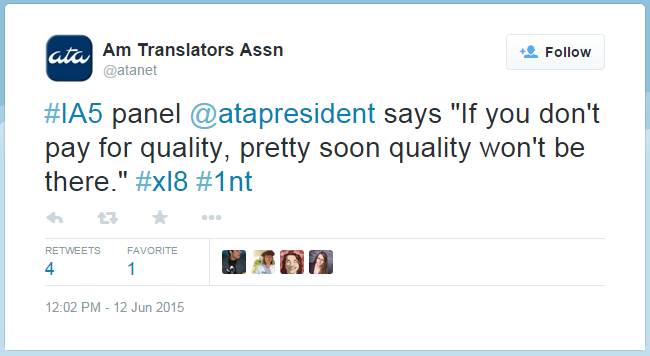If you don’t pay for quality, pretty soon quality won’t be there.
That’s a quote from the president of ATA at the Interpret America conference, and it struck a chord with me. It encapsulates something that I’ve been trying to tease out recently when it comes to how much to pay for translation.
It sounds like a ridiculously simple question, but what is the relationship between quality and price?
Everyone wants to pay as little as possible. It makes sense. Why pay more than you need to for something?
When you pay as little as possible, what are you not paying for? When you pay more than the minimum, where does that go?
The answer is just as simple. It’s investment. There is no such thing as a job done in total isolation. Doing something well requires investment in training, technology, specialisation, research. Quality of working environment, funded by a more-than-minimum price, becomes quality of work.
Translation may cost more than you expected, but there are good reasons for that.

